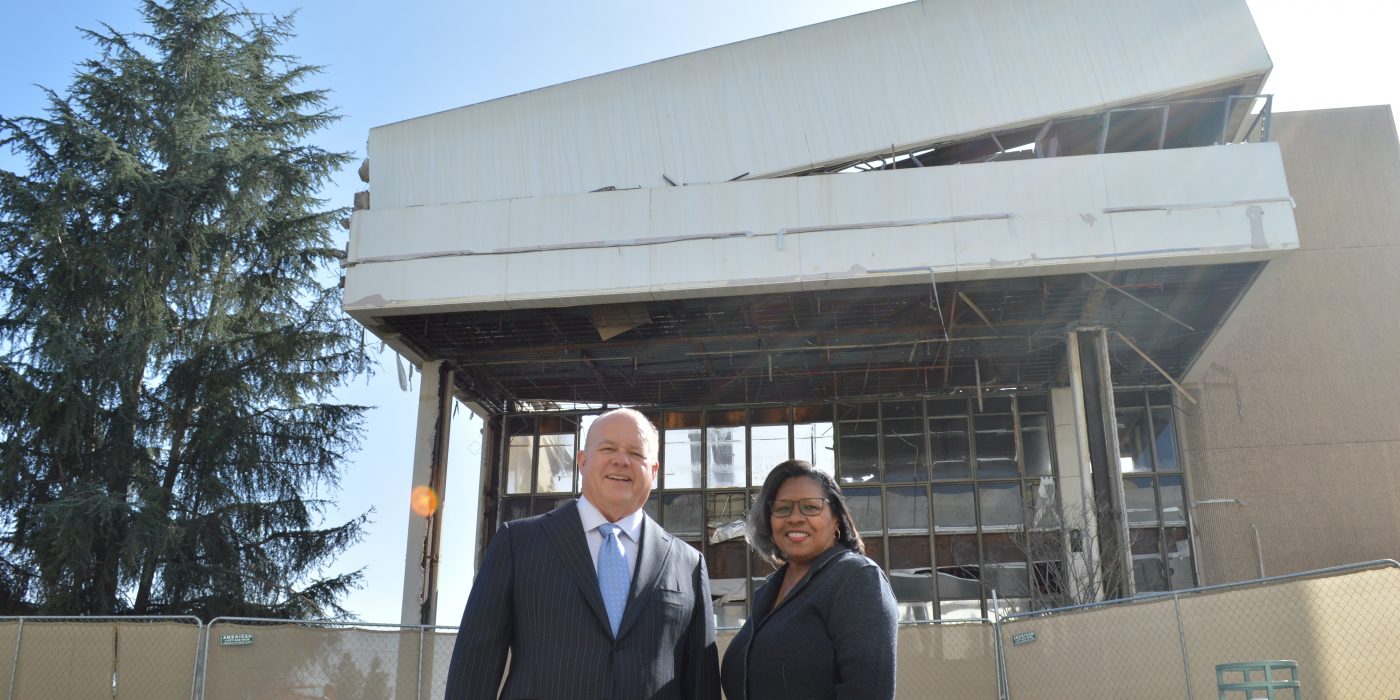
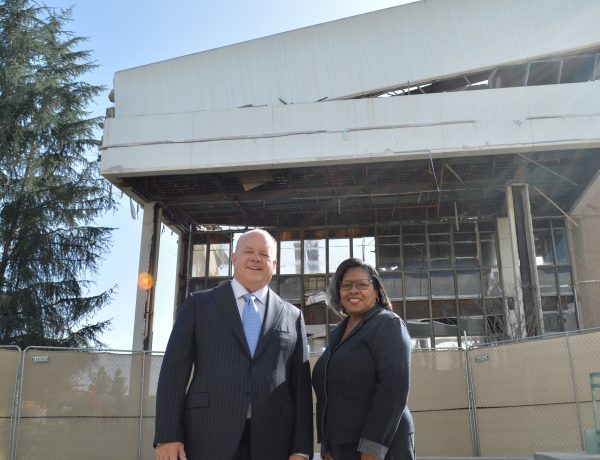
Advancing Science, Advancing PCC
It’s easy to imagine the sciences as part of a separate educational realm from things like fine arts or the humanities. It’s easy to think of students in white lab coats tucked away in the bowels of research universities, measuring chemicals and scribbling incomprehensible formulas on notepads — lab experiments in a social vacuum, independent from everything else.
But the sciences are perhaps the most palpable aspect of our society today: our ability to drive a car to work, for instance, and grab a sugar-free latte on the way says a lot about where we are and how far we’ve come. The sciences have taken us from cabins to skyscrapers, from measles to vaccines. In fact, it was artists and philosophers and other creatives who helped lay the groundwork for the scientific revolution.
Seventeenth century mathematician and philosopher René Descartes said that studying how a machine or living creature worked was not only the key to understanding it but a way to bring us closer to the divine.
Albert Einstein offers a similar view: “All religions, arts and sciences are branches of the same tree. All these aspirations are directed toward ennobling man’s life, lifting it from the sphere of mere physical existence and leading the individual towards freedom.”
It is this very attitude that energizes the Foundation’s support of the Health & Natural Sciences at PCC, and it is what inspired the Advancing Science campaign.
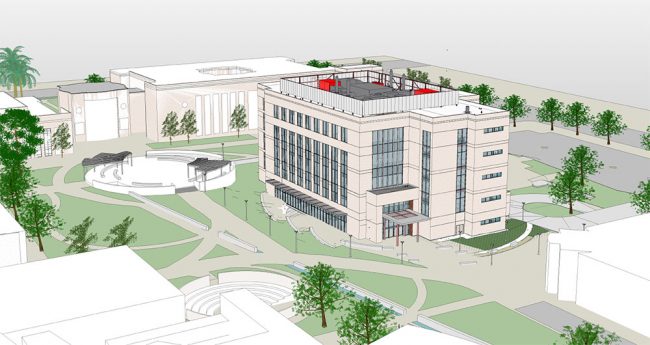
With a $4 million goal, the Advancing Science campaign will raise funds to accompany the replacement Sarafian Building on PCC’s campus, which was deemed seismically unsafe in 2012. The building—currently undergoing reconstruction and refinishing—will house the College’s Health Sciences and Natural Sciences divisions beginning Fall 2023.
Chaired by Foundation board member Rob Floe, and co-chaired by Foundation board member Charmayne Mills Ealy, the Advancing Science campaign will work to support the new facility’s fixtures and furniture, along with equipment, programming and scholarships for the Health & Natural Sciences divisions.
“I was glad to hear that PCC and the Foundation were looking to fundraise for the sciences,” says Charmayne, the Director of Operations for the non-profit STEAM:CODERS. “Students being introduced to science and working in that field is so important right now—perhaps more important than ever—and having the right equipment and programs is necessary for a quality education.”
In September, it was announced that the Foundation received a $1 million gift from the W. M. Keck Foundation to the College’s Biological Technology Program, now named the Keck Biotechnology Program at PCC. It is the lead gift in the Advancing Science campaign, starting the campaign out at a quarter of its goal met.
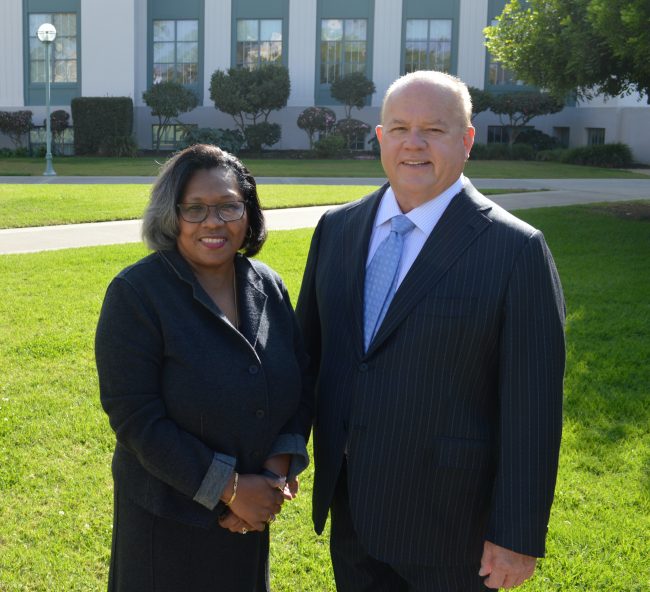
“We’re extremely grateful to the Keck Foundation for selecting PCC to receive a $1 million grant to enhance the science education of PCC students,” said Rob, president and founder of Floe Financial Partners. “It’s an honor for me to be able to chair the campaign. Education is one of the key parts of our society to promote equality, opportunity, and a fully prepared workforce, and with this campaign, the College’s science divisions will be able to provide the best education for students.”
PCC’s Health & Natural Sciences divisions couldn’t agree more.
Long before the COVID-19 pandemic, PCC’s Dean of Natural Sciences, Martha House, and its Dean of Health Sciences, Micah Young—both of them members of the Advancing Science campaign committee—have devoted themselves to communicating the importance of the sciences to the community.
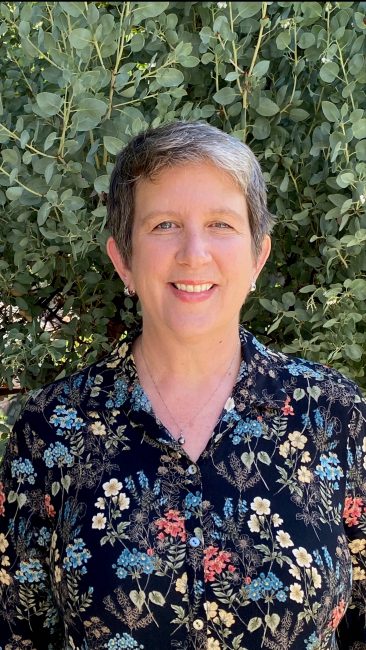
“First and foremost, Natural Sciences is a path towards understanding the way our world is evolving,” says Martha. “We’re in a time when understanding the scientific challenges that face us is so very important—everything from the current COVID-19 pandemic to global climate change. That kind of understanding starts in our division.”
The sciences, she argues, are also a significant part of our economy.
“It’s a path towards incredible employment opportunities for our students,” she says. “It’s important in supporting our local society, our technology infrastructure, and our basic understanding of the public. That includes things like public health, resource sustainability, and transportation. These things affect our daily lives. And again, the beginning of that understanding starts here, in the Natural Sciences.”
Indeed, nursing students require a basic knowledge of anatomy and microbiology, both of which are a part of PCC’s Natural Sciences division. Aspiring engineers need a comprehensive education in physics and physical science. Anthropologists, astrophysicists, chemists, geologists, agriculturists, physicians—all of these professions have their roots there.
“The Natural Sciences division is a place where students will have their first, and for some, their only exposure to college level science,” explains Martha. “There are many students who, because of that exposure, will opt for a career in the sciences. That will offer economic development and create an informed citizenry. It’s one of our primary objectives across all of our work, in fact. Informing people. It helps us understand, especially today, whether a fact is a fact.”
“Science,” she adds, “helps us understand what is known and how and why we know it.”
For Micah, that is precisely why it is so important to support PCC’s science programs.
“And it’s especially true for our Health Sciences programs,” he emphasizes.
The importance of supporting Health Sciences, he explains, was clearly illustrated over the past year and a half by the pandemic.
“There were a lot of first-line and other healthcare responders who can tell you just how bad it got,” he says. “We were already facing shortages in the workforce, and the pandemic exacerbated that shortage.”
Despite these shortages, PCC has always had a good reputation in the local healthcare workforce. Now, it has the opportunity to put itself on the map as a regional workforce provider of science education and healthcare training.
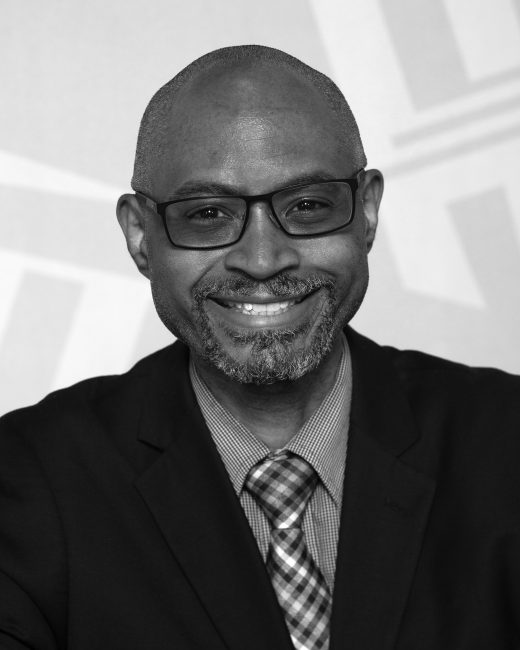
“We’re looking to build on that reputation over the next 3 to 5 years,” says Micah. “This is our opportunity to build on the strengths PCC already has at being a great transfer institution and continue to develop that footprint and accomplish the second mission of the College: to develop a competent and able workforce.”
Micah believes PCC is uniquely situated in the healthcare sector. “We’re one of the few colleges in the state that is able to host all the registered nursing programs, which is unusual for a community college,” he says. “That’s why so many students come to PCC. Not just for nursing, but because of the broader representation of our Health Sciences programs; they come to us because they’re looking to go into one of the health professions other than nursing. Perhaps they want to become a physician or an occupational therapist. Regardless, they look at our programs as a foundational base for their career path.”
It’s important to note that many PCC students have job offers before they ever finish their Health Sciences programs.
“In some of our programs, we have almost a third of students who already have their baccalaureate degrees,” Micah says. “They’ve found their way back to PCC because they might be in the middle of a career change. Perhaps they’re in need of additional training in a specific field. But they return because they know the quality of education being provided here.”
Students in the Health Sciences know they’ll be highly sought after once completing their PCC education. Just ask PCC alumna Angel Bora Ra, who graduated in December 2019.
“I was hired right out of the gate,” she says.
Upon graduating, Angel—known to her friends as Bora—had an offer for the New Graduate RN Residency Program from Adventist Health White Memorial Hospital in Boyle Heights waiting for her.
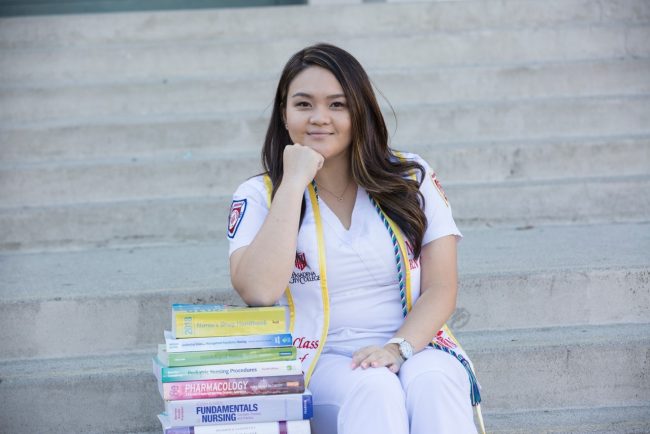
“It’s a 14-week training program designed to transition students into a staff nurse,” she explains. “I was hired for the Cardiac Step Down Unit, which provides care for patients who are discharged from the ICU after cardiac conditions, such as heart attacks, open-heart surgeries, angiographs, and stent placements.”
She has been working at Adventist Health White Memorial Hospital ever since.
“PCC is definitely the reason I’m where I’m at today,” she says.
Combined, PCC’s Health & Natural Sciences divisions welcome more than 3,000 students every year, many of whom go on to study at local institutions such as the California Institute of Technology (Caltech) and California State Polytechnic University, Pomona.
According to the U.S. Bureau of Labor Statistics, jobs in STEM fields are projected to increase more than 10% in the next 10 years. With this in mind, PCC’s Health & Natural Sciences divisions are—and need to be—dedicated to hands-on learning experiences that prepare students for successful careers in the modern world.
“There are new areas popping up in science, new areas in education, and we have a lot of PCC students benefiting from that,” says Martha. “They are going to be competing for jobs and looking to find success upon transfer, so it’s important that we provide them an education that uses state of the art equipment and facilities.”
Ever since the closure of the Sarafian Building, the Health & Natural Sciences divisions have been operating in portable facilities for the past 9 years.
“It’s been challenging,” Martha says. “And that’s one of the reasons the campaign is so exciting. With many of our programs moving into the new facility, there will be enormous benefits to the quality of science education.”
Micah echoes her sentiments.
“With the new building, nursing and radiology will finally have a home,” he says. “When the U Building closed, it limited our growth in terms of offering a wider variety of programs, so this new development will allow all of our allied programs to have a permanent space. Additionally, we’ll be able to expand our healthcare portfolio.”
Starting Summer 2022, the Health Sciences is looking to launch 3 new programs: an advanced pharmacy technician program, an EMT program, and a diagnostics sonography program, all while continuing to build on existing programs.
“With more space, we’re also looking to expand our dental hygiene program,” says Micah. “These are all in-demand programs that have solid labor market data for students looking to build family-sustaining or life-sustaining wages.”
Students and alumni regularly report how well prepared they are when it comes to moving on and transferring from PCC, Martha says. “They feel that they’re able to tackle their transfer programs successfully. They appreciate the connections PCC helps them make to the local workforce. That’s one of the reasons the Advancing Science campaign is so exciting. It won’t just allow us to inhabit a space that the sciences have been lacking, it will go toward program and scholarship support to further help our students find success.”
The Advancing Science campaign, while a philanthropic endeavor, ultimately seeks to improve the health of the Pasadena community; it aims to equip the next generation of scientists; it strives to have an impact on the world. After all, when Dr. Jonas Salk and his team developed the polio vaccine in 1953, or when Nikola Tesla invented the first alternating current induction motor in 1887, it didn’t just change life for their local community, it changed the world.
“I am so pleased the Foundation has made this a priority,” says Martha. “It’s great validation of the hard work we do and the importance of science at PCC.”